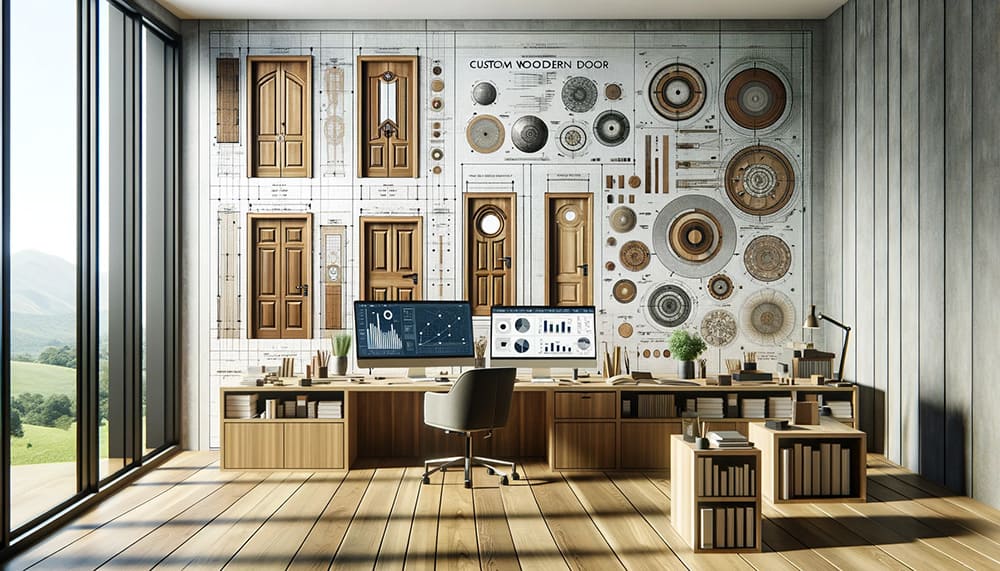Introduction
Wooden doors are not just functional elements within a home or office; they play a pivotal role in defining and enhancing the aesthetic appeal and atmosphere of interior spaces. From the rich, traditional hues of mahogany to the minimalist charm of birch, the selection of a wooden door can dramatically transform the overall theme of any interior design.
Historical Significance and Modern Relevance
Historically, wooden doors have been revered not only for their robustness and functionality but also for their craftsmanship and artistry. In contemporary settings, these qualities translate into design versatility, making wooden doors a favored choice among architects and interior designers. This is particularly evident in how these doors can be customized to fit various modern themes, from rustic to ultra-modern minimalist.
Types of Wooden Doors and Their Impact on Design Themes
- Solid Wood Doors: Known for their durability and classic look, solid wood doors are often use in designs that require a touch of sophistication and timelessness. They work exceptionally well in traditional, rustic, or classical interiors.
- Engineered Wooden Doors: These doors are designe to offer more stability in environments prone to moisture and temperature changes, making them suitable for both contemporary and minimalist themes without sacrificing the wood’s natural appeal.
- Glazed Wooden Doors: Incorporating glass within wooden frames, glazed doors invite light to flow between rooms, enhancing the sense of space and openness in a design. They are perfect for modern and Scandinavian-inspired themes.
Craftsmanship and Customization
The craftsmanship involved in creating wooden doors involves intricate detailing and the ability to tailor designs to specific requirements, which makes each door unique. This level of customization not only allows wooden doors to meet precise functional needs but also to echo the specific style and personality of a space.
Sustainability and Eco-Friendliness
In today’s eco-conscious world, the sustainability of building materials is paramount. Wooden doors, made from renewable resources, offer an environmentally friendly option that also provides insulation properties, which enhance the energy efficiency of buildings.
Psychological Impact and User Experience
The choice of wooden doors can significantly affect the psychological environment of a space. Wood as a material is known to evoke warmth and comfort, which can make interiors seem more inviting and serene—an essential consideration in places like homes and healthcare facilities.
Maintenance and Longevity
Despite their traditional construction, wooden doors can be highly durable and low maintenance, depending on the type of wood and finish used. This makes them a practical choice for many homeowners and designers looking to balance aesthetics with functionality.
Integrating Technology
Modern wooden doors can also integrate technologies for enhanced security and convenience, such as smart locks and automated systems, making them not only beautiful but also smart and functional components of modern interior design.
Conclusion
Wooden doors are much more than simple entry points; they are central pieces in the narrative of interior design, offering a blend of functionality, beauty, and versatility. Their ability to adapt to various design themes while contributing to the sustainability and comfort of environments makes them indispensable in both traditional and contemporary interiors.


